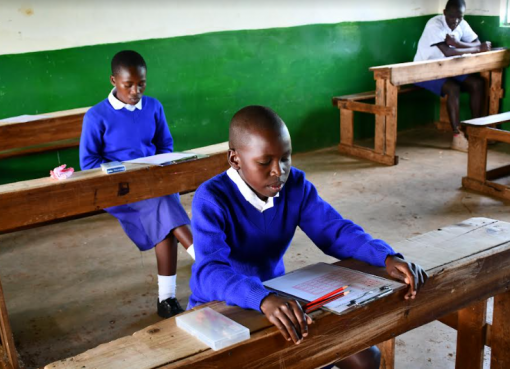If you thought fish vending was only meant to put food on the table, you better change your erratic attitude. Debora Amimo a fish vendor operating within Karibuni slums, Marachi Estate in Busia County has seen her children get education to the university level using proceeds from the venture.

Just like any other bold business women in Busia, Amimo a mother of 5 has dared to dream big and was sparing no energy to ensure she flourish in the fish selling business. She said the venture has been the main source of livelihood for her family and they were leading a decent life.
The growth of her business, she says has enabled her to save enough money to sustain her though it has not been easy being the sole bread for the family.
“I ventured in this business in 1998 and since then I have not turned back. Being a bread winner for my family, I have been able to cater for my children’s school fees and other necessities without any problem courtesy of my business,” she said satisfactorily.
Amimo says that she sells over 100 pieces of fish which sees her get over Ksh.5000 daily a good income that enable her settle her bills and also invest. “Paying house rent, buying food and catering for medical bills would not have been successful without this business,’’ she added proudly.
With the introduction of Aquaculture development through the County government of Busia in partnership with the World Bank, she now see herself gaining more muscles economically and empowering other women with similar dreams.
The availability of fish from Uganda and fish farmers in busia town has been the biggest boost to her business as the commodity is rarely in short supply.
Karibuni, the largest slums in Busia town is densely populated and thus provide a huge market for Amimo’s fish.
She says living in Busia and near the Kenya -Uganda border made it possible for her to run her business smoothly in the two countries.
“I started this business since life was becoming too difficult for me and my family. My husband had just lost his job and he could not meet our children’s financial obligations including school fees to enable them further their studies,” she noted.
Among the challenges she face is during dry spells as fish production then is very low leading to high buying price and in turn low profits.
The recent hike of fuel prices is also a big challenge to her as she spends a lot of money on transport not forgetting the high price of cooking oil which is required in fish preparation.
Amimo discouraged women to stop the habit of waiting for provision from their husbands while they stay home idling around and gossiping. “I want to urge my fellow women to say enough is enough and venture into small businesses which will help them fend for their families,” she advised.
Amimo either urged the government to lower fuel prices which she noted had adversely affected small scale traders.
By Frodah Namayi and Mercyline Matini



